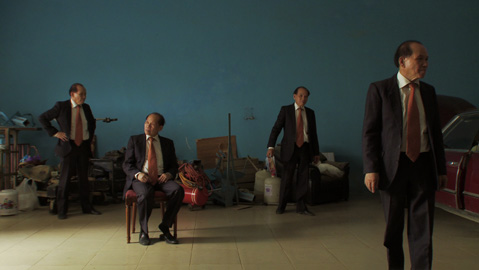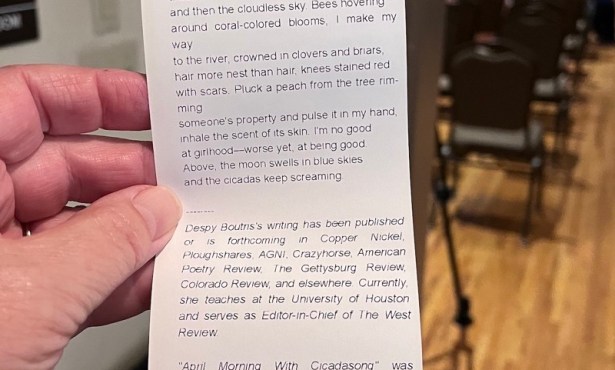Golden Slumber
An Interview with Director Davy Chou

Cambodia was melodramatic movie heaven from 1960 till 1975, when the Khmer Rouge and Pol Pot burned more than 400 films, shut down theaters, and killed as many actors, directors, and producers as possible for being “enemies of the people.” This documentary by director Davu Chou teaches us about that lost slice of cinematic history, talking to the surviving stars and film fans.
Chou recently answered a few of my questions over email, while he was attending other film festivals in Thailand.
Did Cambodian filmmaking ever make it beyond those borders and get recognized elsewhere?
The majority were not shown abroad. However, there were few exceptions. King Sihanouk’s films have been shown at some international film festivals, in Moscow for example, as far as I remember. But for the “popular” Khmer films, the most famous were screened in Thailand, mainly because both cultures share a lot, and as many folk tales at the origins of some Cambodian films are shared by both cultures. Films such as 12 Sisters from Ly Bun Yim or The Snake Man by Tea Lim Koun were very famous in Thailand for example. And Tea Lim Koun is quite an exception, as he showed several of his films around Southeast Asia, in Philippines, Singapore, Malaysia….
Why was mostly melodramatic moviemaking such a bad thing in the Khmer Rouge’s eyes? Is it because the films were considered too decadent and Western, or were their subversive messages being spread as well?
I can’t see obvious and conscious subvertive messages in the few surviving films I’ve seen, or in the stories of the lost films I’ve been told. But what we surely know is that cinema, as “discotheques” and the music in general, were for the Khmer Rouge one of the main symbols of the western influence, an entertainment that they couldn’t allow, a symbol of what they wanted to annihilate. For sure, most films dealt with love stories, and love is something that they tried to forbid during the regime. And there were some “modern films,” like the great The Time to Cry made in 1972, that mainly focused on the Khmer upper class, their love stories, and their way of life. That, for sure, couldn’t be accepted by the Khmer Rouge.
For such a traumatic end to their careers, most of the people interviewed seem to be pretty stoic about the whole thing. Is that because they’ve had to endure so much over the years, and this is just a facet? Or have Cambodians of that age swallowed down their grief and keep it hidden?
What I can say is that each of them has a different way to deal with this past. And that is the result, first of their character, second of their personal story. For example, I would not say that Ly You Sreang, who explains at the end of the film how he lost his wife and became a taxi driver in France, stays stoic telling us this story.
But that’s true that Ly Bun Yim, in the film, never seems hurt by the fact of having stopped making films or having lost nearly all his films. The reason for me is that he has never stopped making films — in his imagination! When you hear him speaking, you really feel like he is still in the ’60s, preparing his next big Melies special effect to impress the Cambodian audience.
And as for Yvon Hem, the reason why he seems to speak with distance about his films is that evoking all this period doesn’t remind him about having lost his films, but having lost his family. And then, cinema doesn’t seem to be that important thing anymore.
What’s the state of Cambodian filmmaking today?
The situation is still critical, with very few Cambodian films shot a year, few movie theaters, no film school. But obviously something is happening for the last recent years. The Cambodia Film Commission, created in 2009, has been working on attracting international shooting in Cambodia, has led several workshops, and has recently launched the Cambodia International Film Festival where I showed my film in last December. The first multiplexes appeared in Phnom Penh last year, showing U.S. films with licenses, HD and 3D. A group of young Cambodians, Kon Khmer Koun Khmer, tries to organize film events and make short films. And we see more and more Cambodian films in international film festivals. So I guess that the country is in the good direction, even if the film industry needs more support than what is provided today.
Golden Slumber screens on Saturday, February 4, 8:10 a.m. at the Metro 4.



